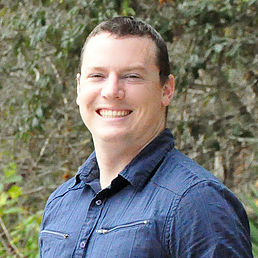Let’s talk about Anxiety.
Anxiety is a normal response to stress. Whether you are getting ready for a job interview, a first date, or a public performance, experiencing nervousness, unease, or worry is pretty much normal. If you experience extreme anxiety that is disproportionate to the situation at hand, have a difficult time breaking away or managing your anxiety, or avoid or give up activities or important events because of anxiety, you might benefit from learning some coping skills for anxiety. Coping skills for anxiety can also be used, in most cases, to supplement therapy to reduce anxiety.
Coping Skills to Reduce Anxiety
There are several coping strategies that can help with anxiety. Increasing our mental health toolbox and learning new coping skills to manage anxiety can not only make situations where you are anxious more manageable but may also reduce the anxiety you experience in the first place if the anxiety-provoking situation or event goes well.
Coping skills can help, and can take many forms
Here is a list of some of our favorite coping skills for anxiety. We recommend skills be practiced daily, even if you are not experiencing anxiety. This helps build the skill into a habit and/or memory, and gives you ample opportunity to troubleshoot the skill should you run into any unexpected problems while practicing the skills. It is always better to troubleshoot during practice runs, rather than when you are already feeling anxious!
Deep breathing
I personally consider deep breathing to be a foundational coping skill for anxiety. It’s effective and is used within several other coping strategies and skills. Breathing brings air into and out of the lungs, taking in oxygen and expelling carbon dioxide. Although breathing is often an involuntary operation, you may actively regulate your breath in a way that helps to mitigate stress effects. For example, you can hold your breath in inhale on demand.

Breathing exercises move the body towards a more peaceful state. The vagus nerve is a part of the nervous system which modulates organs which contribute to feelings of anxiety. The brain monitors the condition of these organs through the impulses provided to the brain stem by the vagus nerve.
Deep diaphragmic breathing can relax and keep the vagus nerve well-toned. A toned vagus nerve can help slow the heart, lower blood pressure, lower levels of cortisol, decrease anxiety, regulate moods, and calm racing thoughts.
Unchecked stress can influence your body, mood, and behavior. Stress may have significant physical effects, from feeling anxious and exhausted to developing insomnia and a compromised immune system. Stress may also aggravate chronic symptoms, making them worse or increase the time needed to heal.
Regulated breathing is an intervention to reduce stress, and to increase effective stress tolerance. research shows that it can boost focused concentration, influence anxiety, and reduce levels of cortisol. Several other coping skills include deep breathing as a foundational element, including seated meditation, hatha yoga, walking meditation, and body scan meditation.
How to use Deep Breathing
I encourage people to start deep breathing by breathing in and out for 4 seconds over both the inhale and exhale. It’s important to note that 4 seconds is not a magic number and that everyone’s lung capacity and physiology will be different. The goal is to take deeper and longer breathes than normal, which helps tone the vagus nerve, without actually running out of oxygen.
If you feel short of breath or that you’re running out of air, try taking shorter breaths and see if that is helpful. One common mistake people make is to quit before deep breathing becomes effective. I encourage you to start deep breathing as soon as you feel anxious and to continue deep breathing for around ten minutes, if possible.
I also encourage daily practice, as daily practice gives you the opportunity to discover your breathing pace, as well as work out any problems you might encounter with the skill before you need it!
Breath2Relax can help.
The National Center for Telehealth & Technology has designed an excellent (and free) app called Breathe2Relax which is a remarkable training aid for learning effective deep breathing. You can find it on iOS and Google Play store.
Progressive Muscle Relaxation (PMR)

Progressive muscle relaxation (PMR), also called ‘body scanning,’ is especially good when you feel nervous or find it hard to concentrate. PMR helps you concentrate on yourself and get your muscles to relax while you consciously tune into your body. It is also an excellent way to center your thoughts and to be aware of your present and is at the very core of the practice of mindfulness (which we’ll discuss in a later article).
A Simple PMR Exercise
Start by reducing distractions like TV, radio, or smartphone alerts and getting into a relaxed position.
You can elect to close your eyes to keep focused. Wearing comfortable clothes may be beneficial, but certainly is not required. One of the major benefits of deep breathing and PMR is that they can be done almost anywhere.
Breathe deeply and begin by tensing your facial muscles. Squeeze your lips, wrinkle your nose, clench your teeth for five seconds each, relaxing the muscles between each step. Remember to breathe. It can help to say ‘relax’ when calming the muscles.
You can then move to muscles in your neck, back, shoulders, arms, and hands, squeezing each muscle group firmly (without hurting or straining painfully) for around 5-seconds before you release, focusing on that sensation of relaxation. This pattern of tensing and releasing can then be applied to muscles in your thighs, calves, feet, and even toes.
If you find you’d like to follow along with a script for PMR, there are dozens of excellent examples on Youtube! Following along with a script can be a wonderful experiential way to build expertise with the skill.
Are these coping skills for anxiety helpful, but not enough?
If you’d like to discuss additional interventions that can be helpful for anxiety, such as cognitive-behavioral therapy, contact us! We welcome the opportunity to help you reduce your anxiety and life the life you want to live!
- Which Therapy is Best? - December 14, 2023
- How to deal with Burnout when you’re sick of everything and everyone. - February 23, 2022
- The Hidden Dangers of Social Media: How It Can Eat Away at Your Mental Health - August 21, 2021









